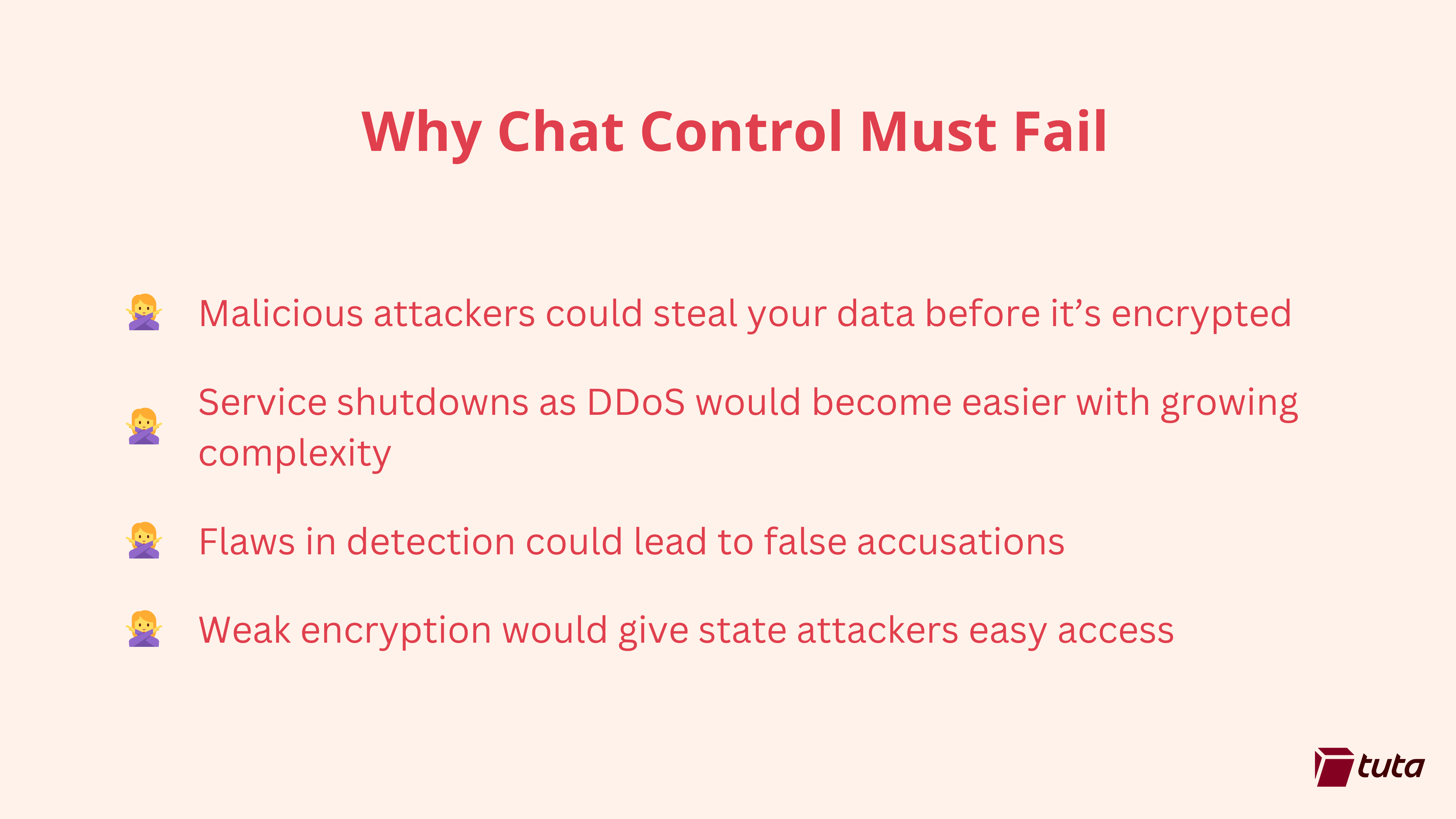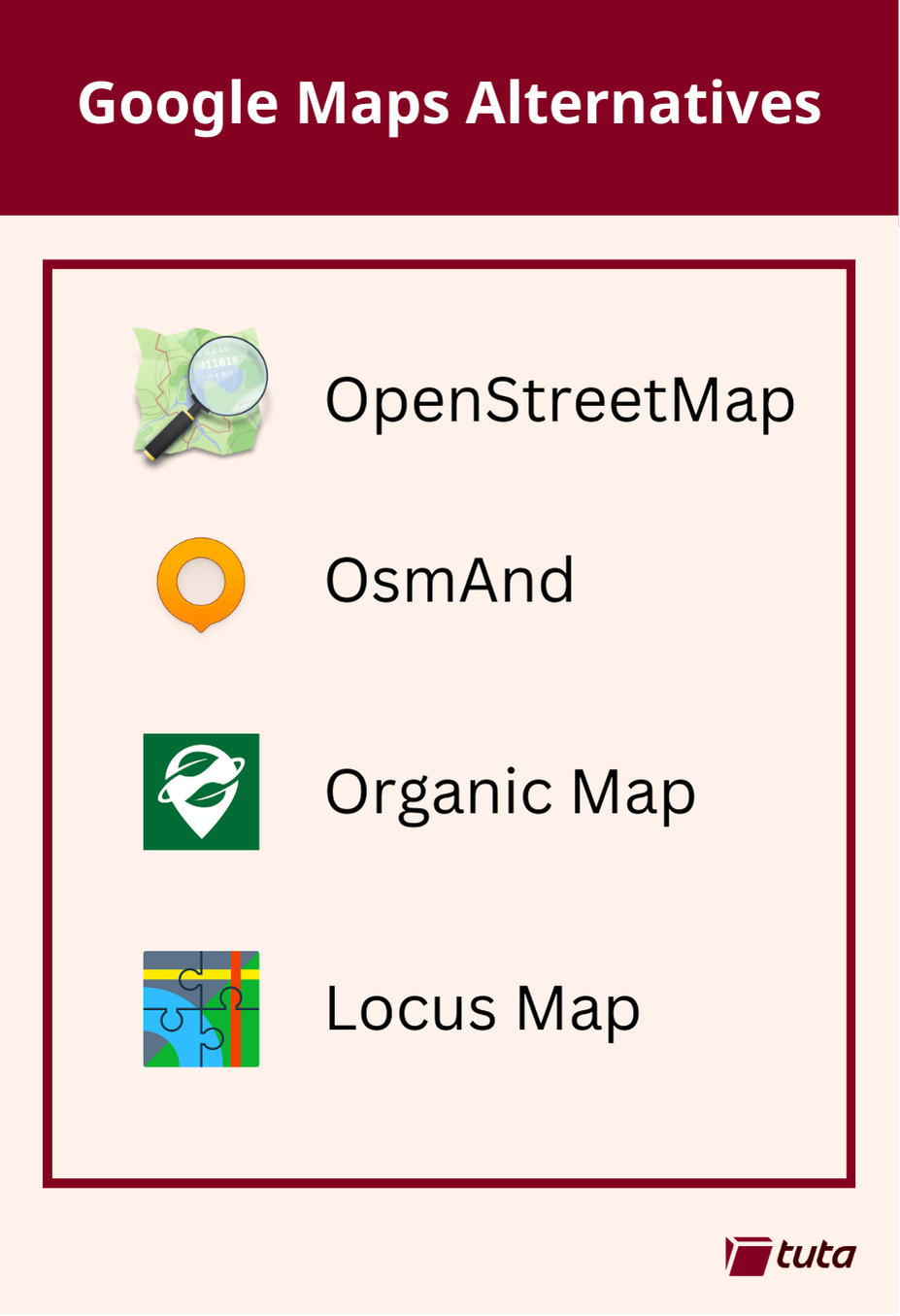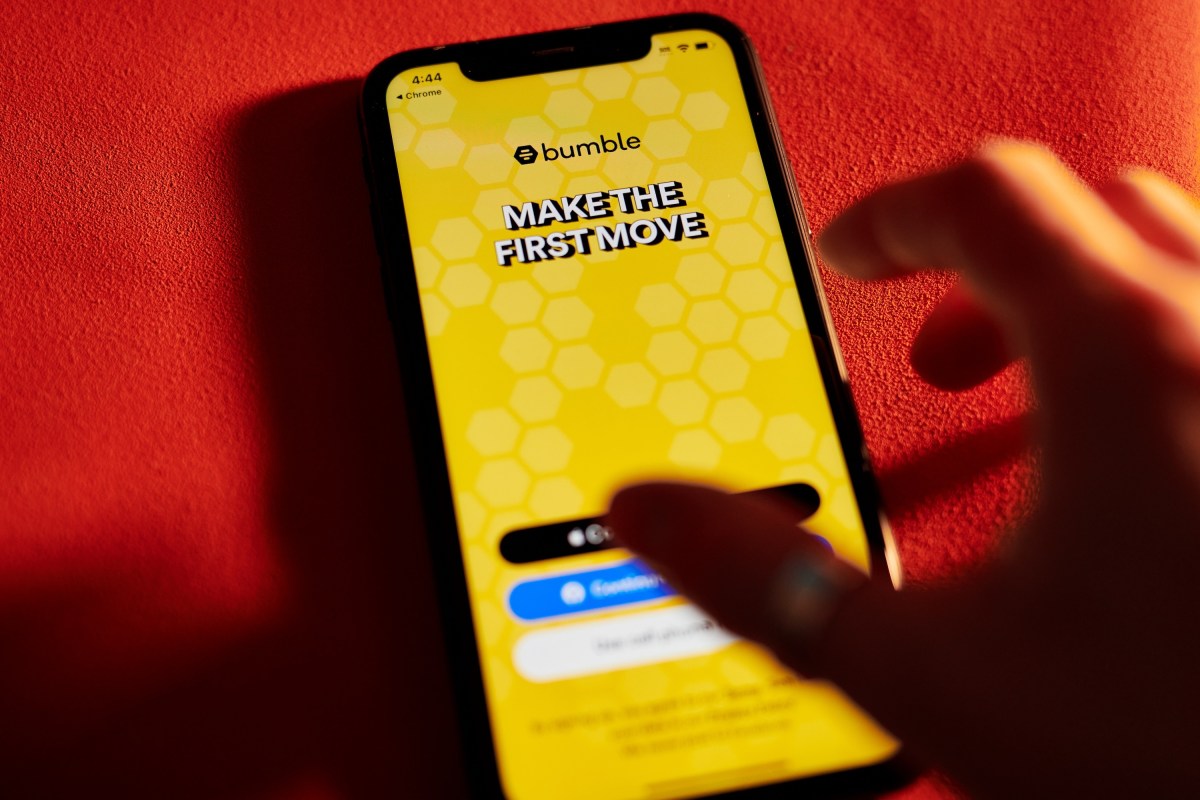Privacy Guides
With Reddit's encroaching IPO and their poorly planned API changes, we need a place to keep up with privacy topics that isn't tied to an anti-privacy, centralized ~~sinking ship~~ site. Our [forum running Discourse](https://discuss.privacyguides.net/) has been a great place to discuss website changes and answer questions, but it doesn't *quite* provide the same experience as Reddit does for things like sharing news, so we're trying something new: [!privacyguides@lemmy.one](https://lemmy.one/c/privacyguides) is our new ActivityPub-enabled community for sharing links and other information from the privacy and security realm. Welcome! We're going to be trying out posting to this community for a few months to decide if we want this to replace or coexist with the r/privacyguides subreddit, so we'll see how it goes. If you want this to succeed, stay active! Our mission is to become the most inviting and friendly place to discuss privacy and security on the fediverse 😎 ### How do I join the Privacy Guides community on Lemmy? You can join a few different ways: * **On [Kbin.social](https://kbin.social/m/privacyguides@lemmy.one)**, a Lemmy alternative with a more Reddit-like UI and **instant registrations**. [I didn't like](https://www.reddit.com/r/PrivacyGuides/comments/13zo1cf/comment/jmwpic2/?utm_source=share&utm_medium=web2x&context=3) Kbin *from a hosting perspective* because of some missing features, but for just browsing communities and joining ours it's a great option: [https://kbin.social/m/privacyguides@lemmy.one](https://kbin.social/m/privacyguides@lemmy.one) * **On** [**Lemmy.one**](https://Lemmy.one), this is the server which hosts the Privacy Guides community on Lemmy, and also the server that I admin myself. You are welcome to create an account, but it might take up to 24 hours for your account to be approved. * **On another Lemmy instance:** You can join the community by entering `!privacyguides@lemmy.one` in the search box on your instance. There are [plenty of servers you could join](https://join-lemmy.org/instances), or you could host your own relatively easily if you're familiar with self-hosting. * **On another ActivityPub instance:** You can also probably join by entering `@privacyguides@lemmy.one` or [https://lemmy.one/c/privacyguides](https://lemmy.one/c/privacyguides) in the search box of the ActivityPub software you use, although Mastodon does not seem to pull in posts from Lemmy communities properly in my limited testing, so **YMMV**. --- Verification post: https://www.reddit.com/r/PrivacyGuides/comments/13x7oe3/who_wants_to_try_out_lemmy_privacyguideslemmyone/
First and foremost, I'll get this out of the way: I abhor all commercial social media. I don't trust them, I know users are the product, and - ultimately, I feel they're nothing but a cancer on society. But, I also have to acknowledge that, for one or two use cases at least, they seem pretty unavoidable. For me, that one use case is Facebook Marketplace. Here in Australia, there's simply no better alternative if you want to reach a large number of potentially interested buyers (or even buy some stuff yourself). The supermarket noticeboard is no more; the Trading Post was bought long ago and died on the vine; and Gumtree has devolved into a cesspool of nothing but scammers and fuckwits. So, I use FB Marketplace. My FB account isn't in my name, uses a throwaway email address, and has no followers or friends. It's only a member of the local buy/sell groups that I'm interested in, and it performs no "social" activities (posts, likes, etc) at all. Until now, I generally only use FB marketplace with a "clean", dedicated browser on my computer, running in private mode and via a VPN. But, it means I frequently miss messages from interested parties when I'm away from my computer. I also sometimes use the `mbasic.facebook.com` site from a private Firefox tab on my iPhone, but FB has just started telling me I need to use Chrome (no. fucking. way.) or Safari (*maaaaaybeeeee?*) after October 28th. When I was on Android, there were a few wrapper apps that I was able to use but, so far, my searches for an equivalent on iOS have turned up nothing. So, knowing full well this may lead to nowhere, I thought I'd ask this community: does anyone have a good, privacy-friendly way to use FB on iOS? Thanks in advance for any useful tips or suggestions.
 www.aclunc.org
www.aclunc.org
>With the looming presidential election, a United States Supreme Court majority that is hostile to civil rights, and a conservative effort to rollback AI safeguards, strong state privacy laws have never been more important. > >But late last month, efforts to pass a federal comprehensive privacy law died in committee, leaving the future of privacy in the US unclear. Who that future serves largely rests on one crucial issue: the preemption of state law. > >On one side, the biggest names in technology are trying to use their might to force Congress to override crucial state-level privacy laws that have protected people for years. > >On the other side is the American Civil Liberties Union and 55 other organizations. We explained in our own letter to Congress how a federal bill that preempts state law would leave millions with fewer rights than they had before. It would also forbid state legislatures from passing stronger protections in the future, smothering progress for generations to come. > >Preemption has long been the tech industry’s holy grail. But few know its history. It turns out, Big Tech is pulling straight from the toxic strategy that Big Tobacco used in the 1990s. Back then, Big Tobacco invented the “Accommodation Program,” a national campaign ultimately aimed at federal preemption of indoor smoking laws. > >Phillip Morris and others in the tobacco industry implemented a three-step strategy which is only known through documents made public in litigation years later. Those documents reveal the inner workings of a nefarious corporate influence machine designed to quietly snuff out a democratic movement that threatened their profits. And now Big Tech is trying to do the same. > >But it’s not too late. We can ensure our civil rights and civil liberties are protected in the digital age. But to defeat Big Tech’s strategy, first we must understand it.
I didn't know where else to go, so if this is not the place, please let me know and I'll delete this. I'm ready to port over to JMP.chat, and was wondering if anyone could share a referral link/code for me to avoid the 15 dollars activation of the number. I would really appreciate it.
Since it looks like Firefox might not be a good option for the long haul due to some disappointing decisions from its management, I'm on the lookout for privacy-friendly alternatives. I came across Cromite, which is based on Chromium and has an ad blocker. Has anyone tried it? From what I've seen, the built-in ad blocker seems pretty basic and not very customizable. Still, I think any alternative we choose should be based on Chromium, especially if we don’t want to wait ages for Ladybird.
 aeon.co
aeon.co
cross-posted from: https://links.hackliberty.org/post/2932106 > Image Transcription: > >WHAT WILL A CASHLESS SOCIETY MEAN? > > > >THE PROS > > > >CONVENIENCE — THERE WILL NO LONGER BE ANY NEED TO CARRY CASH AROUND > > > >THE CONS > > > >EVERY TRANSACTION YOU MAKE WILL BE TRACKED > YOUR SPENDING HABITS CAN BE LINKED TO YOUR CARBON FOOTPRINT > > > >YOU WILL ONLY BE PERMITTED TO SPEND ON THINGS THE GOVERNMENT APPROVES OF. > THINGS THAT ARE DEEMED TO BE LUXURIES — MEAT, FUEL, TRAVEL — CAN BE RESTRICTED > > > >YOUR MONEY CAN BE PROGRAMMED WITH AN EXPIRY DATE — IF YOU DON’T SPEND IT BY A > CERTAIN DATE, YOU'LL LOSE IT > > > >THERE WILL BE NO ‘BLACK’ ECONOMY. IT WILL NOT BE POSSIBLE TO AVOID TAX, BUT THEN > YOU WILL NOT BE ABLE TO GIVE POCKET MONEY TO CHILDREN OR GRANDCHILDREN AND > NEITHER WILL YOU BE ABLE TO BORROW OR LEND MONEY TO FRIENDS WITHOUT THAT > BEING TAXED BY THE GOVERNMENT > > > >PARKING AND SPEEDING FINES WILL BE TAKEN AT SOURCE, WITHOUT THE POSSIBILITY OF > CHALLENGE AND POSSIBLY EVEN WITHOUT YOUR KNOWLEDGE > > > >IF YOU PROTEST THE ACTIONS OF THE GOVERNMENT, YOUR MONEY CAN BE SWITCHED OFF. > IF YOU THINK THAT’S UNLIKELY, IT’S ALREADY HAPPENED TO TENS OF THOUSANDS OF > CANADIANS WHEN THEY PROTESTED AND IT ALSO HAPPENED TO A BRITISH JOURNALIST > > > >A CASHLESS SOCIETY MEANS THE END OF HUMAN FREEDOM > > > >IF YOU WANT THAT, DO NOTHING > > > >IF YOU DON'T, THE FIRST THING YOU MUST DO IS RESPOND TO THE GOVERNMENT'S > PROPOSAL ON DIGITAL ID, UPON WHICH A CASHLESS SOCIETY MUST BE BASED > > > >https://www.gov.uk/government/consultations/draft-legislation-to-help-more-people-prove-their- > identity-online/consultation-on-draft-legislation-to-support-identity-verificat > > Image Credit: [Brett Scott](https://brettscott.substack.com/)
 tuta.com
tuta.com
>Another month, another attempt: Even though Hungary had to cancel the latest EU Council's vote on the Child Sexual Abuse (CSA) Regulation in June 2024 because there was no majority among member states, it tried again this Wednesday - without success. The tipping point was that the Dutch secret service clearly issued their opinion on the enormous threat to everybody's security should end-to-end encryption be weakened. Encryption is paramount for the digital resilience in Europe.
- https://blog.torproject.org/new-release-tor-browser-1357/ - https://www.mozilla.org/en-US/security/advisories/mfsa2024-51/#CVE-2024-9680 Mozilla Firefox itself and all Mozilla Firefox forks should be updated accordingly once a new build is released.
 www.techradar.com
www.techradar.com
>Depending on where you're based, you'll find PayPal's new data-sharing option under a different name. Remember, you may not see this at all if you're based in a country that doesn't allow it. > >If you're in the US, you should head to your profile Settings and tap on Data & privacy. Under Manage shared info, click on Personalized shopping. You should see the option enabled by default. Toggle off the button at the right to opt-out. > >If you are in the UK like me, you'll see something different after you head to your profile Settings and tap on Data & privacy. > >Under Manage your privacy settings, here you'll see an Interest-based marketing tab – click on it. At this point, two options will appear: Interest-based marketing on PayPal and Internet-based marketing on your accounts. You have to tap on each of these and toggle off the button at the right to opt-out. These instructions can also apply if you're based in the EU.
[@privacyguides](https://lemmy.one/c/privacyguides) collaborators, it’s time to review the recommendation of Firefox as a good browser option… From: [@sarahjamielewis](https://mastodon.social/@sarahjamielewis) [https://mastodon.social/@sarahjamielewis/113245689258934184](https://mastodon.social/@sarahjamielewis/113245689258934184)
cross-posted from: https://lemmy.zip/post/23512234 > A new Federal Trade Commission (FTC) report confirms what EFF has been warning about for years: tech giants are widely harvesting and sharing your personal information to fuel their online behavioral advertising businesses. > > Report: https://www.ftc.gov/news-events/news/press-releases/2024/09/ftc-staff-report-finds-large-social-media-video-streaming-companies-have-engaged-vast-surveillance
 techcrunch.com
techcrunch.com
>Tails will be incorporated “into the Tor Project’s structure,” which will allow for “easier collaboration, better sustainability, reduced overhead, and expanded training and outreach programs to counter a larger number of digital threats,” according to a [blog post](https://blog.torproject.org/tor-tails-join-forces/) published today by the Tor Project
 techcrunch.com
techcrunch.com
>LinkedIn users in the U.S. — but not the EU, EEA, or Switzerland, likely due to those regions’ data privacy rules — have an opt-out [toggle](https://www.linkedin.com/mypreferences/d/settings/data-for-ai-improvement) in their settings screen disclosing that LinkedIn scrapes personal data to train “content creation AI models.” The toggle isn’t new. But, as first [reported](https://www.404media.co/linkedin-is-training-ai-on-user-data-before-updating-its-terms-of-service/) by 404 Media, LinkedIn initially didn’t refresh its privacy policy to reflect the data use. >The terms of service have now been [updated](https://www.linkedin.com/legal/privacy-policy), but ordinarily that occurs well before a big change like using user data for a new purpose like this. The idea is it gives users an option to make account changes or leave the platform if they don’t like the changes. Not this time, it seems. >**To opt out of LinkedIn’s data scraping, head to the “Data Privacy” section of the LinkedIn settings menu on desktop, click “Data for Generative AI improvement,” then toggle off the “Use my data for training content creation AI models” option. You can also attempt to opt out more comprehensively [via this form](https://www.linkedin.com/help/linkedin/ask/TS-DPRO), but LinkedIn notes that any opt-out won’t affect training that’s already taken place.** >The nonprofit Open Rights Group (ORG) has called on the Information Commissioner’s Office (ICO), the U.K.’s independent regulator for data protection rights, to investigate LinkedIn and other social networks that train on user data by default. >“LinkedIn is the latest social media company found to be processing our data without asking for consent,” Mariano delli Santi, ORG’s legal and policy officer, said in a statement. “The opt-out model proves once again to be wholly inadequate to protect our rights: the public cannot be expected to monitor and chase every single online company that decides to use our data to train AI. Opt-in consent isn’t only legally mandated, but a common-sense requirement.”
This is straightforward with browser addons like uBlock Origin where you can add and choose blocklists, but I did searches for doing so system wide and using a VPN but didn’t find clear answers. I could use a DNS service that provides blocklists but isn’t it best practice to leave DNS to the VPN provider? I looked up blocklists and VPNs but didn’t find relevant results. On Android, I didn’t find any apps that let you filter blocklists and using your own VPN other than Rethink, but the blocklists feature requires using Rethink’s DNS. So what’s the best way to filter ads and trackers on both 3rd party apps and on OS’s like Android (specific Samsung phones) while still using a VPN?
I've had a Galaxy S22+ for 2 years and still want to use it. When I look up how to maximize privacy on Android, many results say to install custom ROMs which I can't since its a US model and the bootloader is locked. I just want to minimize tracking and sharing of personal information. I could use a firewall app like RethinkDNS to block trackers, but could I completely block tracking from Google and Samsung? Are there any lists of packages to uninstall to improve privacy? (I've used ADB to remove a bunch of bloatware. Ex: `pm uninstall -k --user 0 com.samsung.android.arzone`)
Hi, my wife decided to create a new email for our newborn daughter which my wife would use to send updates to our relatives about what is going on in our daughter life. My wife is using gmail, I do use proton. She has created a new gmail account but I have asked her to reconsider and to create a new account on proton privacy wise. What arguments would you use for my case? Thanks.
> A privacy flaw in WhatsApp, an instant messenger with over 2 billion users worldwide, is being exploited by attackers to bypass the app's "View once" feature and view messages again.
 pierre-couy.dev
pierre-couy.dev
publication croisée depuis : https://lemmy.pierre-couy.fr/post/653426 > This is a guide I wrote for Immich's documentation. It features some Immich specific parts, but should be quite easy to adapt to other use cases. > > It is also possible (and not technically hard) to self-host a protomaps release, but this would require 100GB+ of disk space (which I can't spare right now). The main advantages of this guide over hosting a full tile server are : > - it's a single nginx config file to deploy > - it saves you some storage space since you're only hosting tiles you've previously viewed. You can also tweak the maximum cache size to your needs > - it is easy to configure a trade-off between map freshness and privacy by tweaking the cache expiration delay > > If you try to follow it, please send me some feedback on the content and the wording, so I can improve it
 www.techzine.eu
www.techzine.eu
For Android users seeking a privacy-focused browser, [Privacy Guides](https://www.privacyguides.org/en/mobile-browsers/#mull) recommends Mull: >Mull is a privacy oriented and deblobbed Android browser based on Firefox. Compared to Firefox, it offers much greater fingerprinting protection out of the box, and disables JavaScript Just-in-Time (JIT) compilation for enhanced security. It also removes all proprietary elements from Firefox, such as replacing Google Play Services references. >Mull enables many features upstreamed by the Tor uplift project using preferences from Arkenfox. Proprietary blobs are removed from Mozilla's code using the scripts developed for Fennec F-Droid.
 www.pewresearch.org
www.pewresearch.org
cross-posted from: https://links.hackliberty.org/post/2496422 > > This survey was conducted among 5,101 U.S. adults from May 15 to 21, 2023 > > ### % say they are **concerned** about how ... use(s) the data they collect about them > - Companies: 81% > - The government: 71% > > ### % say they have **little to no understanding** about what ... do(es) with the data they collect about them > - Companies: 67% > - The government: 77% > > ### % say they have very little or no trust at all that leaders of social media companies will > - **Publicly admit mistakes and take responsibility** when they misuse or compromises users' personal data: 77% > - **Not sell users' personal data** to others without their consent: 76% > - **Be held accountable by the government** if they misuse or compromise users' personal data: 71% > > ### % say that as companies use AI to collect and analyze personal information, this information **will** be used in ways that ... > - People would not be comfortable with: 81% > - Were not originally intended: 80% > - Could make people's lives easier: 62% > > ### % say that when they think about managing their privacy online, they ... > - **Trust themselves** to make the right decisions about their personal information: 78% > - Feel **skeptical** that anything they do will make much difference: 61% > - Feel **overwhelmed** by figuring out what they need to do: 37% > - Feel privacy is **not that big of a deal** to them: 29% > - Are **confident** those who have access to their personal information will do **what is right**: 21% > > ### % say they ... agree to online privacy policies right away, without reading what the policies say > - Always, almost always or often: 56% > - Sometimes: 22% > - Rarely or never: 18% > - No answer: 4% > > Please read the report for a more in-depth look at the data and analysis!
Just wondered how others promote threat awareness for friends, family, co-workers, and clients. Every few weeks I email a half dozen employees & family members explaining one or other phishing attempt I've seen, just to keep it in peoples minds. I heard someone else talking about a kind of email pen-testing service you can sign up for and they send scammy emails to see if the recipient falls for it. Seems like a great idea but only viable for me if it's very cheap. I could link to something on privacyguides.org in my email footer but I think that's just virtue signalling more than anything actually useful.
The spies in your home: How WiFi companies monitor your private life [https://proton.me/blog/wifi-surveillance](https://proton.me/blog/wifi-surveillance) [@privacyguides](https://lemmy.one/c/privacyguides)
cross-posted from: https://lemmy.ca/post/26747543 > The post is in the link, the article with more background info is here (it cites the mastodon post): https://www.androidauthority.com/custom-roms-vs-google-3469378/ > > I originally saw the article on [this post](https://lemm.ee/post/39353290) on [!android@lemdro.id](https://lemdro.id/c/android) and went looking for links.
Like when I read [3 Billion National Public Data Records with SSNs, Addresses Dumped Online](https://reddit.com/r/privacy/comments/1emmz1r/3_billion_national_public_data_records_with_ssns/), am I supposed to access that data dump or something to see if I got pwned? Are there equivalents to [haveibeenpwned.com](https://haveibeenpwned.com) for this type of stuff? Any guides on what to do when these happen? I feel like I'm doomscrolling or watching the news, and feeling depressed about the world as a result because I should be doing something but I can't or it seems like I can't. Even though I know better than to put such personal info online, but that doesn't eliminate the odds of them getting into breaches like these, and having started to be careful about digital privacy has opened my eyes to the sad state of privacy.
 tuta.com
tuta.com
>repeated media reports of Google’s disregard for the privacy of the general public led to a push for open source, community driven alternatives to Google Maps. The biggest contender, now used by Google’s direct competitors and open source projects alike is OpenStreetMap. 1. OsmAnd > >OsmAnd is a fantastic choice when searching for an alternative to Google Maps. It is available on both Android and iOS devices with both free and paid subscription options. Free accounts have full access to maps and navigation features, but choosing a paid subscription will allow you unlimited map downloads and increases the frequency of updates. > >All subscriptions can take advantage of turn-by-turn navigation, route planning, map markers, and all the favorite features you expect from a map and navigation app in 2024. By making the jump to a paid subscription you get some extra features like topo maps, nautical depths, and even point-of-interest data imported from Wikipedia. 2. Organic Maps > >Organic Maps is a great choice primarily because they offer support for all features of their iOS and Android apps completely offline. This means if you have an old phone laying around, you can install the app, download the maps you need and presto! You now have an indepth digital map in the palm of your hand without needing to worry about losing or damaging your primary mobile device when exploring the outdoors. > >Organic Maps tugs our heartstrings by their commitment to privacy. The app can run entirely without a network connection and comes with no ads, tracking, data collection, and best of all no registration. 3. Locus Maps > >Our third, and last recommendation today is Locus Maps. Locus Maps is built by outdoor enthusiasts for the same community. Hiking, biking, and geocaching are all mainstays of the Locus App, alongside standard street map navigation as well. > >Locus is available in its complete version for Android, and an early version is available for iOS which is continuing to be worked on. Locus Maps offers navigation, tracking and routes, and also information on points-of-interest you might visit or stumble upon during your adventures.
>Google has fallen victim to its own ad platform, allowing threat actors to create fake Google Authenticator ads that push the DeerStealer information-stealing malware. >In a new malvertising campaign found by Malwarebytes, threat actors created ads that display an advertisement for Google Authenticator when users search for the software in Google search. >What makes the ad more convincing is that it shows 'google.com' and "https://www.google.com" as the click URL, which clearly should not be allowed when a third party creates the advertisement. >We have seen this very effective URL cloaking strategy in past malvertising campaigns, including for KeePass, Arc browser, YouTube, and Amazon. Still, Google continues to fail to detect when these imposter ads are created. >Malwarebytes noted that the advertiser's identity is verified by Google, showing another weakness in the ad platform that threat actors abuse. >When the download is executed, it will launch the DeerStealer information-stealing malware, which steals credentials, cookies, and other information stored in your web browser. >Users looking to download software are recommended to avoid clicking on promoted results on Google Search, use an ad blocker, or bookmark the URLs of software projects they typically use. >Before downloading a file, ensure that the URL you're on corresponds to the project's official domain. Also, always scan downloaded files with an up-to-date AV tool before executing.
>Filed in 2022, the Texas lawsuit said that Meta was in violation of a state law that prohibits capturing or selling a resident’s biometric information, such as their face or fingerprint, without their consent. >The company announced in 2021 that it was shutting down its face-recognition system and delete the faceprints of more than 1 billion people amid growing concerns about the technology and its misuse by governments, police and others. >Texas filed a similar lawsuit against Google in 2022. Paxton’s lawsuit says the search giant collected millions of biometric identifiers, including voiceprints and records of face geometry, through its products and services like Google Photos, Google Assistant, and Nest Hub Max. That lawsuit is still pending. >The $1.4 billion is unlikely to make a dent in Meta’s business. The Menlo Park, California-based tech made a profit of $12.37 billion in the first three months of this year, Its revenue was $36.46 billion, an increase of 27% from a year earlier.
I find that I need a security camera for my back yard. Do you folks recommend any particular makes & models? It should avoid the cloud but record locally. I'm somewhat handy with Linux and a RaspberryPi, if that helps. Thanks!
 arstechnica.com
arstechnica.com
>The Kids Online Safety Act (KOSA) easily passed the Senate today despite critics' concerns that the bill may risk creating more harm than good for kids and perhaps censor speech for online users of all ages if it's signed into law. >KOSA received broad bipartisan support in the Senate, passing with a 91–3 vote alongside the Children’s Online Privacy Protection Action (COPPA) 2.0. Both laws seek to control how much data can be collected from minors, as well as regulate the platform features that could harm children's mental health. >However, while child safety advocates have heavily pressured lawmakers to pass KOSA, critics, including hundreds of kids, have continued to argue that it should be blocked. >Among them is the American Civil Liberties Union (ACLU), which argues that "the House of Representatives must vote no on this dangerous legislation." >If not, potential risks to kids include threats to privacy (by restricting access to encryption, for example), reduced access to vital resources, and reduced access to speech that impacts everyone online, the ACLU has alleged. >The ACLU recently staged a protest of more than 300 students on Capitol Hill to oppose KOSA's passage. Attending the protest was 17-year-old Anjali Verma, who criticized lawmakers for ignoring kids who are genuinely concerned that the law would greatly limit their access to resources online. >"We live on the Internet, and we are afraid that important information we’ve accessed all our lives will no longer be available," Verma said. "We need lawmakers to listen to young people when making decisions that affect us."
 techcrunch.com
techcrunch.com
>In a new academic paper, researchers from the Belgian university KU Leuven detailed their findings when they analyzed 15 popular dating apps. Of those, Badoo, Bumble, Grindr, happn, Hinge and Hily all had the same vulnerability that could have helped a malicious user to identify the near-exact location of another user, according to the researchers. >While neither of those apps share exact locations when displaying the distance between users on their profiles, they did use exact locations for the “filters” feature of the apps. Generally speaking, by using filters, users can tailor their search for a partner based on criteria like age, height, what type of relationship they are looking for and, crucially, distance. >To pinpoint the exact location of a target user, the researchers used a novel technique they call “oracle trilateration.” >The good news is that all the apps that had these issues, and that the researchers reached out to, have now changed how distance filters work and are not vulnerable to the oracle trilateration technique. >Neither Badoo, which is owned by Bumble, nor Hinge responded to a request for comment.
 techcrunch.com
techcrunch.com
>A federal district court in New York has ruled that U.S. border agents must obtain a warrant before searching the electronic devices of Americans and international travelers crossing the U.S. border. >The ruling on July 24 is the latest court opinion to upend the U.S. government’s long-standing legal argument, which asserts that federal border agents should be allowed to access the devices of travelers at ports of entry, like airports, seaports and land borders, without a court-approved warrant. >“The ruling makes clear that border agents need a warrant before they can access what the Supreme Court has called ‘a window into a person’s life,’” Scott Wilkens, senior counsel at the Knight First Amendment Institute, one of the groups that filed in the case, said in a press release Friday. >The district court’s ruling takes effect across the U.S. Eastern District of New York, which includes New York City-area airports like John F. Kennedy International Airport, one of the largest transportation hubs in the United States. >Critics have for years argued that these searches are unconstitutional and violate the Fourth Amendment, which protects against unwarranted searches and seizures of a person’s electronic devices. >In this court ruling, the judge relied in part on an amicus brief filed on the defendant’s behalf that argued the unwarranted border searches also violate the First Amendment on grounds of presenting an “unduly high” risk of a chilling effect on press activities and journalists crossing the border. >With several federal courts ruling on border searches in recent years, the issue of their legality is likely to end up before the Supreme Court, unless lawmakers act sooner.
cross-posted from: https://lemmy.ca/post/26065429 > Hey, all. I just bought a Samsung Galaxy Tab A7, and I would like to install a custom Android ROM on it. After a bit of research, my two options are LineageOS and Murena (aka /e/OS). > > Does one have any advantages over the other? Or is it simply a matter of preference?
1. When using Kraken to buy Monero, aren't you concerned about potential data breaches that could lead to identity theft? 2. How secure is Kraken when it comes to protecting user information? 3. If you use a no-KYC exchange like CakeWallet, aren't you worried about potential government investigations? I'd like to get your thoughts on these options I live in a EU member country
I tried looking for lists but didn't find any. The Work Number is US-specific and where your employers input your salary data for future employers to see. You can opt out here: https://employees.theworknumber.com/employee-data-freeze/.
One example would be state disability programs, they already need my real name and identity to work with me. Are there any downsides to sharing a simplelogin alias containing my real name vs no containing my real name? I just think it would be easier record keeping for them.
I just tried changing my email on studentaid.gov to a simplelogin alias (using SL is a habit at this point) and I got notifications that emails from it were bounced while trying to verify the email change with sent codes. I looked it up and found a bunch of Reddit posts about issues with SL and iCloud.


